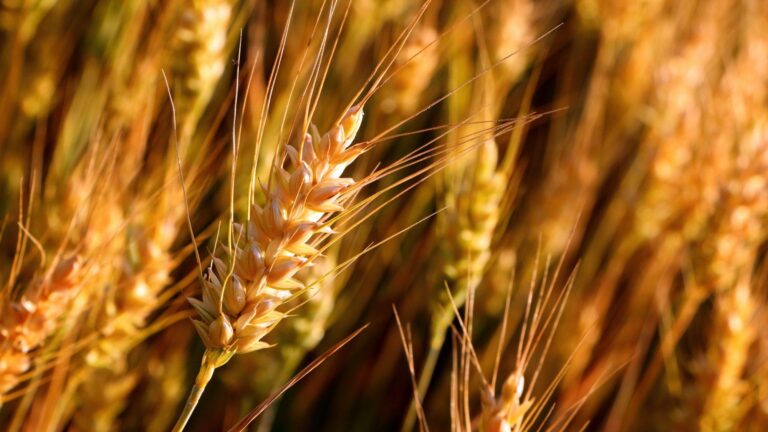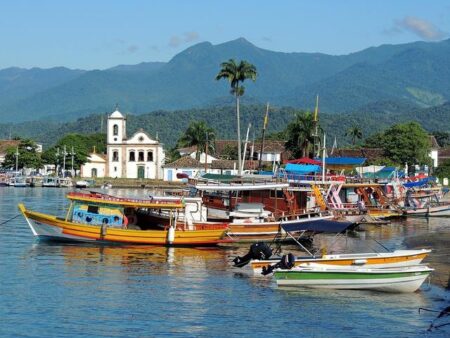ACP Bioenergia has launched a pioneering agricultural initiative in Brazil’s semi-arid Caatinga region, beginning the cultivation of grain and cotton crops. This move marks a significant step in expanding sustainable agribusiness within one of the country’s most challenging ecosystems. By leveraging innovative farming techniques, ACP Bioenergia aims to boost local production while fostering economic development and environmental stewardship in the area.
ACP Bioenergia launches sustainable grain and cotton farming in Brazil’s Caatinga region
ACP Bioenergia has initiated a groundbreaking agricultural project in Brazil’s Caatinga biome, focusing on sustainable grain and cotton production. The initiative aims to transform this semi-arid region by integrating innovative farming techniques that prioritize environmental conservation and social development. By leveraging drought-resistant crop varieties and precision irrigation systems, ACP Bioenergia seeks to boost local productivity while minimizing water usage and soil degradation.
Key highlights of this project include:
- Use of native and adapted crop strains that thrive in arid conditions
- Implementation of eco-friendly pest management reducing chemical reliance
- Engagement with local communities to foster sustainable economic opportunities
- Monitoring and reporting systems to track environmental impact and yields
| Crop | Expected Yield per Hectare | Water Savings (%) |
|---|---|---|
| Grain (Sorghum) | 3.2 tons | 40% |
| Cotton | 1.4 tons | 35% |
Innovations in agroforestry practices boost productivity while preserving fragile ecosystems
ACP Bioenergia’s latest venture in Brazil’s Caatinga biome marks a significant shift in sustainable agricultural development. By integrating advanced agroforestry techniques, the company is successfully cultivating grains and cotton without compromising the region’s delicate ecological balance. This approach combines native tree species with crop production, creating a synergistic environment that enhances soil fertility, improves water retention, and reduces erosion risk. Such innovations not only drive higher yields but also contribute to carbon sequestration, positioning ACP Bioenergia at the forefront of climate-conscious farming.
Key elements of ACP Bioenergia’s methodology include:
- Intercropping: Strategic planting of cotton and grains beneath a canopy of native trees that provide shade and organic matter.
- Soil regeneration: Use of cover crops and minimal tillage protects the fragile soil structure endemic to the Caatinga.
- Water management: Enhanced water-use efficiency through agroforestry reduces dependency on irrigation.
Below is a concise comparison of traditional monoculture practices versus ACP Bioenergia’s agroforestry system:
| Factor | Traditional Monoculture | ACP Bioenergia Agroforestry |
|---|---|---|
| Soil Health | Degraded over time | Improved organically |
| Biodiversity | Low | High |
| Water Retention | Poor | Optimized |
| Crop Yield Stability | Variable | Consistent |
Experts recommend integrated water management and local community engagement for long-term success
Specialists emphasize that the sustainable development of agriculture in ecologically sensitive areas like Brazil’s Caatinga requires a holistic approach. Rather than isolated initiatives, combining advanced water resource management techniques with active participation from local communities ensures projects like ACP Bioenergia’s grain and cotton cultivation can thrive without depleting natural reserves. Such integrated strategies promote resilience by addressing water scarcity through innovation, including rainwater harvesting, efficient irrigation systems, and natural recharge of aquifers.
Key benefits of this approach include:
- Enhanced water availability even during dry periods
- Improved soil conservation and ecosystem balance
- Empowerment of local populations through engagement and knowledge-sharing
| Strategy | Impact | Community Role |
|---|---|---|
| Advanced Irrigation Tech | Reduces water waste by 30% | Training and monitoring |
| Rainwater Harvesting | Supplies up to 50% seasonal water needs | Installation and maintenance |
| Local Knowledge Integration | Boosts crop adaptation success | Cultural input and feedback |
The Conclusion
As ACP Bioenergia embarks on cultivating grain and cotton in Brazil’s Caatinga region, the initiative marks a significant step toward diversifying agricultural activities and promoting sustainable land use in one of the country’s most challenging ecosystems. Industry observers will be watching closely to see how these efforts impact local economies, environmental conservation, and Brazil’s broader agribusiness landscape in the years to come.




